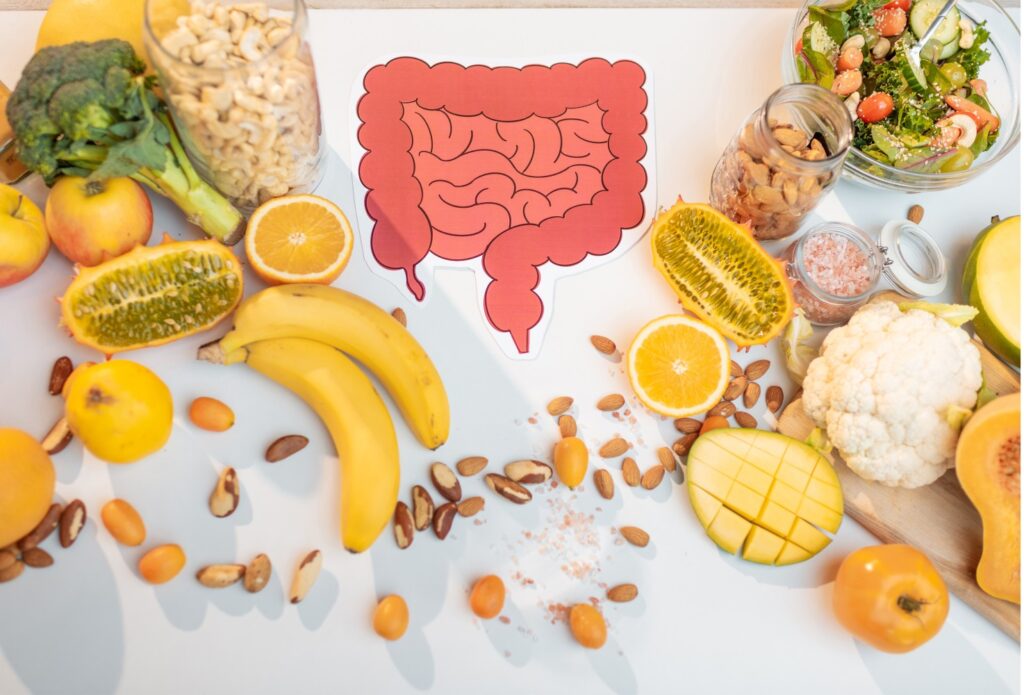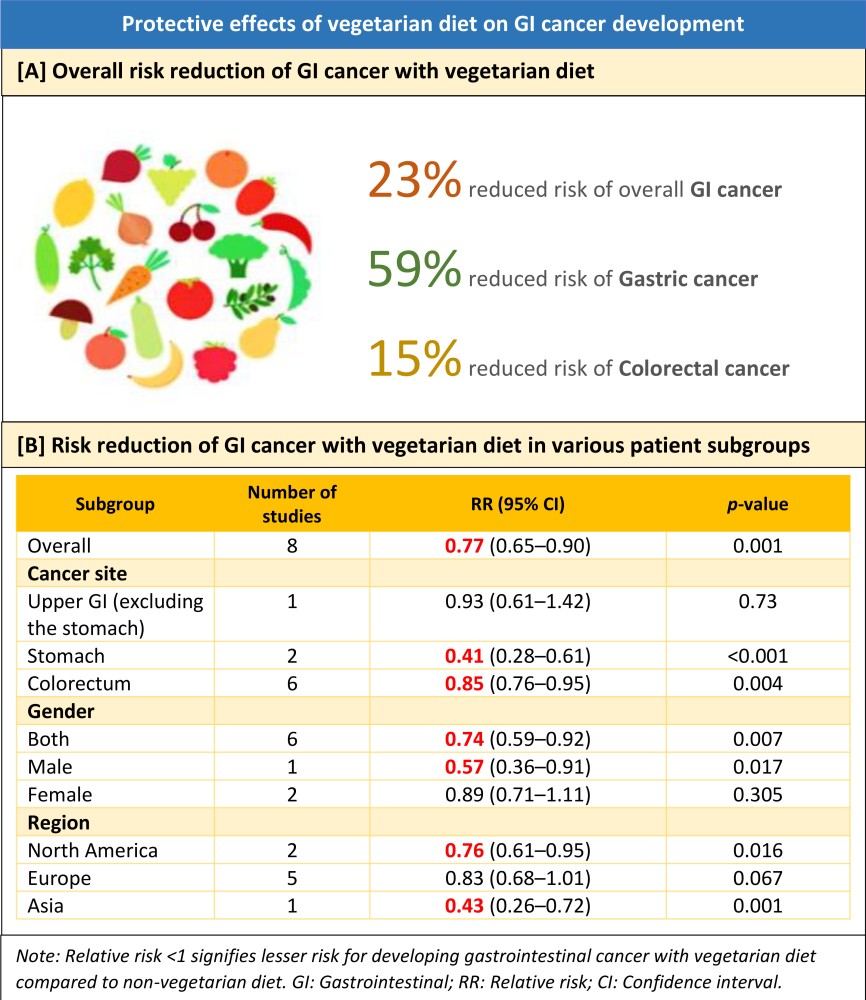
Modifiable risk factors like dietary choices, physical activity levels, and smoking and drinking behaviors have been linked with gastrointestinal (GI) cancer. Notably, diet itself emerged as a central factor influencing tumor formation. A diet rich in plant-based foods with limited consumption of non-vegetarian foods has been associated with reduced risk of GI cancer.
A recent study by Bai et al., published in the European Journal of Gastroenterology & Hepatology, reaffirmed the protective effects of vegetarian diet against the risk of development of gastric and colorectal cancer compared to non-vegetarian meals.
This meta-analysis included 8 high-quality observational studies including 6,86,691 participants (age: 20–89 years; mean duration of intervention: 5─20.3 years). Participants in the intervention groups were provided with vegetarian diets, while those in the control groups were given non-vegetarian meals (meat or meat products). The primary outcome examined was morbidity related to GI cancer. Subgroup analysis based on gender, type of cancer (gastric, colorectal, and upper GI [excluding stomach]) and geographical location (North America, Asia, and Europe) was also conducted.
The study results are summarized below:
- Vegetarian diet was associated with a 23% reduced risk of overall gastrointestinal tumor development (p = 0.001); the extent of protection was the strongest for gastric (p <0.001) as well as colorectal cancers (p = 0.004; Graphic A).
- No association was observed between vegetarian diet and risk of upper gastrointestinal cancers (excluding the stomach).
- The positive effects of adopting a vegetarian diet in reducing GI cancer risk was found to be greater in males while no such effects were observed in females (Graphic B).
- Vegetarian diet resulted in a 57% reduction in GI cancer risk among Asians and 24% risk reduction among North Americans (Graphic B).

Clinical Implications
- Adherence to a vegetarian diet can be one of the important primary prevention strategies aimed at lowering the occurrence of gastrointestinal cancer, especially in people with heightened risk of cancer.
- Assessment of dietary pattern and the quality of vegetarian diets may be necessary so that personalized dietary recommendations according to individual risk factors and dietary preferences can be suggested.(Source: Bai T, Peng J, Zhu X, Wu C. Vegetarian diets and the risk of gastrointestinal cancers: A meta-analysis of observational studies. Eur J Gastroenterol Hepatol. 2023;35(11):1244-52.)
